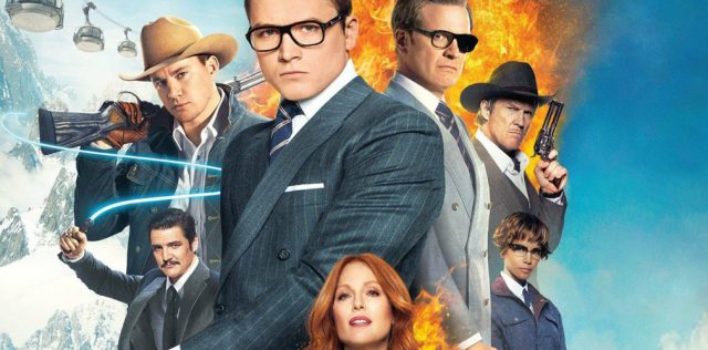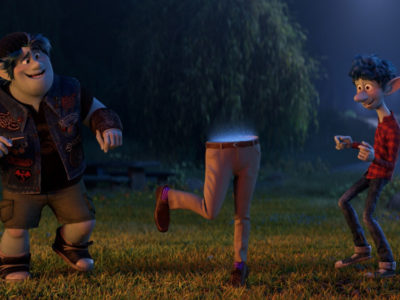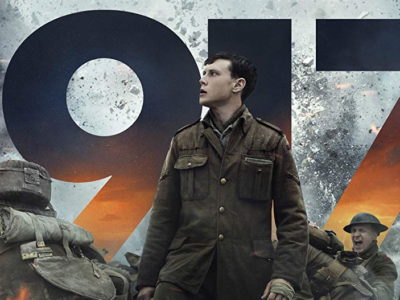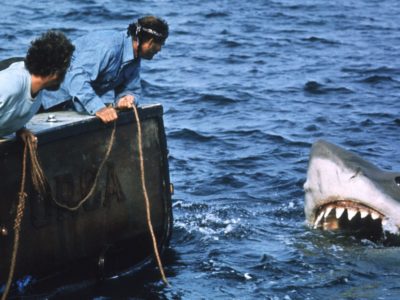Review| Kingsman: The Golden Circle
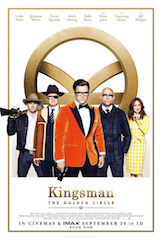 In 2014’s Kingsman: The Secret Service, the hyped and oft-marketed first meeting between Taron Egerton’s Eggsy and Colin Firth’s Harry Hart aka “Galahad” is a frantic, one-minute bar fight where Firth’s Hart unexpectedly takes down a gang of toughs in an English pub. It felt fun, yet brutal, but also an original take on the gentleman spy made famous by English authors Le Carre and Fleming. This fight scene was a microcosm for the movie’s spoof-adjacent wit and violent intensity, shot through with a genteel, suave affability. It felt lively and unique while playing with subverting expectations and flirting with impropriety.
In 2014’s Kingsman: The Secret Service, the hyped and oft-marketed first meeting between Taron Egerton’s Eggsy and Colin Firth’s Harry Hart aka “Galahad” is a frantic, one-minute bar fight where Firth’s Hart unexpectedly takes down a gang of toughs in an English pub. It felt fun, yet brutal, but also an original take on the gentleman spy made famous by English authors Le Carre and Fleming. This fight scene was a microcosm for the movie’s spoof-adjacent wit and violent intensity, shot through with a genteel, suave affability. It felt lively and unique while playing with subverting expectations and flirting with impropriety.
In Kingsman: The Golden Circle, the exact same is recreated, however this time in a Kentucky saloon-like bar and featuring the addition of a lasso and whip-toting American agent played by Pedro Pascal. Even down to the placement of the booth where they sit in this saloon, the fight scene is practically the same. While there are few qualms to be made about callbacks or self-referential material, the difference in this scene versus the virtually same one from its predecessor is this feels like a slog. Gone is the feeling of something exciting or new or potentially provocative. Pascal’s “Agent Whiskey”, a member of the American equivalent to the Kingsman, the Statesman, fights these bar thugs, but the movie can’t even bother itself to stay focused on the fighting, cutting away to a casual conversation between other characters.
Likewise, Pascal’s Agent Whiskey is a much more violent man, feigning subduing an opponent to brutally stabbing one in this fight, whereas Firth’s Hart would have subdued or stunned an opponent. This is hardly the starkest contrast in this sequel’s approach to violence to its cinematic precursor. At another point late in the movie, a character needlessly snaps the neck of a defenseless opponent in a callous fit of revenge, something he admits is “ungentlemanly” and not very Kingsman-like. Yet, the movie fails to show this violence, and this is the real key to the approach. While the first Kingsman movie juxtaposed the gentleman spy with the brutal reality of what it would actually be like to be a man with a “license to kill”, to borrow from a franchise in its source material, the sequel fails to provide this tension and embraces the world it’s satirical material created in the first movie. The result is a very bleak outlook focused solely on the inherent goodness of redemptive violence and lack of mercy for those who err, hence the slog-like nature of the movie’s narrative.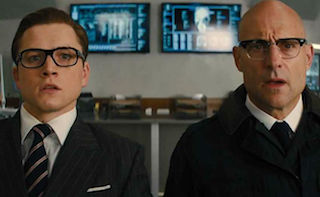
Speaking of the story, The Golden Circle‘s plot and characterization may not be the most troubling implication of the movie, re: the violence, but it is certainly the most integral pieces that seem to have been ignored for the sake of a sequel. The motivations of Julianne Moore’s Ms. Poppy want to be seen as the same “good old-fashioned megalomania” of the first movie, but her CEO-like businesswoman drug dealer character is introduced with a voiceover explaining her motivations and why her character is the way she is, a sure-fire sign of a movie too lazy to show, not tell, and her impetus to achieve her stated ends have all the excitement of Facebook COO Sheryl Sandberg’s daily itinerary–which, now that I think about it, is probably much more exciting than Ms. Poppy’s character.
All of her scheming to make sure her drug cartel dominates the global market is to force the world’s hand to legalize illicit drugs, specifically her illicit drugs, which the movie spins into an oddly handled political can of worms regarding the personal morality of drug users, the morality of the drug trade, and the war on drugs. An often political hot potato and source of legitimate debate since the Reagan administration in the United States, it seems odd for the movie to tackle the issue, much less doing so in the manner it does. An evil drug cartel boss wants to force drugs to be legal to legitimately profit on people’s addictions, which is bad. The president of the United States then wants to let all the illicit drug users die to wipe out the drug problem, even making sure to double-down on his callous disregard for human life by having one of his cabinet members be at risk, only to be interned in a football stadium along with millions of other people to live out her final hours. In contrast, Eggsy’s friend and girlfriend both might die, positing not everyone who takes drugs is bad. But, when the day is saved, his friend says “I’m never touching that stuff again!” The movie is confused and offers no real position, not even a middle-of-the-road response to this incredibly serious debate. The only solution it seems to offer is, “kill all the bad guys,” but the bad guys are only those targeted by the heroes as bad.
Kingsman: The Golden Circle is uneven in its characterization, story treatment, and even it’s world-building. While the first movie had its farcical moments, innovative action sequences, and funny characters, this second installment seems bitterly caught in a world of its own making and the results are past its best, dull, and goes down as smoothly as a poorly-made martini.


